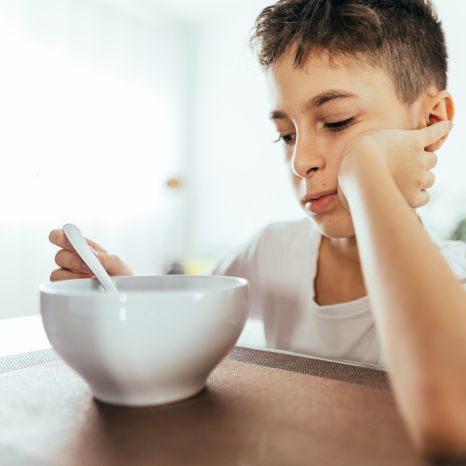What are the symptoms of gastroenteritis that you need to look out for?
Gastroenteritis is the stomach flu or gastric flu, a common condition that affects millions of people worldwide each year. While gastroenteritis is usually not serious and resolves on its own within a few days, recognising gastroenteritis symptoms early can help manage the condition effectively. In this page, we’ll delve into the various causes, symptoms, and remedies for gastroenteritis.
What are the symptoms of gastroenteritis that you need to look out for?
Gastroenteritis is the stomach flu or gastric flu, a common condition that affects millions of people worldwide each year. While gastroenteritis is usually not serious and resolves on its own within a few days, recognising gastroenteritis symptoms early can help manage the condition effectively. In this page, we’ll delve into the various causes, symptoms, and remedies for gastroenteritis.
What are the symptoms of gastroenteritis?
The gastroenteritis symptoms can range from mild to severe and usually resolve within a few days with adequate rest, hydration, and supportive medical care.

Diarrhoea
The symptoms of gastroenteritis are diarrhoea, which is often watery and loose, and may be accompanied by abdominal cramps, bloating, and the urgency to use the restroom.

Nausea and vomiting
Gastroenteritis can cause feelings of nausea and may lead to vomiting. These symptoms can be quite uncomfortable but usually improve as the infection subsides.

Abdominal pain and cramping
Pain and cramping in the abdomen are common with gastroenteritis, which may range from mild discomfort to severe pain, depending on the severity of the infection.

Fever
Patients may experience a low-grade fever. This is the body’s natural response to infection and is accompanied by flu-like symptoms, including fatigue and body aches.

Loss of appetite
Due to nausea and vomiting, individuals often experience a loss of appetite, it is important to stay hydrated during this time, even if eating is difficult.

Dehydration
Diarrhoea and vomiting can lead to dehydration. Signs of dehydration include dry mouth, decreased urination, dizziness, and lethargy which can aggravate gastroenteritis.
Gastroenteritis is usually not serious and resolves on its own within a few days; however, recognising its symptoms early can help in managing the condition effectively. However, in some cases, young children, the elderly, or those with weak immune systems, may face complications and may require medical intervention for gastroenteritis.
What are the causes of gastroenteritis?
Viral infections
Viruses are the most common cause of gastroenteritis, with norovirus and rotavirus being the most prevalent. These viruses are highly contagious and spread through contaminated food, water, or surfaces, as well as through close contact with infected individuals.
Bacterial infections
Bacteria such as Salmonella, Escherichia coli, Campylobacter, and Clostridium difficile cause gastroenteritis. Bacteria are often transmitted through contaminated food, improperly cooked meat or poultry, unpasteurised dairy products, or contaminated water.
Parasitic infections
Parasites like Giardia lamblia and Cryptosporidium can infect the gastrointestinal tract and lead to the diagnosis of gastroenteritis. These parasites are typically transmitted through contaminated water sources or food that has been improperly handled or prepared.
Toxins
Ingestion of certain toxins, such as those produced by bacteria like Staphylococcus aureus or Bacillus cereus, can cause gastroenteritis. These toxins are often found in improperly stored or prepared food, such as dairy products, meat, or reheated dishes.
Food poisoning
Consuming contaminated food, either with bacteria, viruses, or toxins, can lead to gastroenteritis. This can occur from eating undercooked or raw food, consuming food stored at improper temperatures, or consuming food that has been contaminated during preparation.
Traveller’s diarrhoea
Travelling to regions with poor sanitation and hygiene practices can increase the risk of contracting gastroenteritis, often referred to as traveller’s diarrhoea. This is commonly caused by bacterial or parasitic infections acquired through contaminated food or water.
What is the available treatment for gastroenteritis?
The treatment typically focuses on relieving the gastroenteritis symptoms, preventing dehydration, and addressing the underlying cause of the infection.

Fluid replacement
Replenishing lost fluids and electrolytes is crucial, especially if persistent diarrhoea and vomiting are present. Oral rehydration solutions (ORS), which contain the perfect balance of water, salts, and sugars, are often recommended to prevent dehydration. In severe cases, intravenous (IV) fluids may be necessary, particularly for young children, the elderly, or those with severe dehydration.

Dietary adjustments
While the stomach is irritated, it’s usually best to avoid solid foods that may further upset and slow down the digestive system. Instead, it would be best to opt for bland, easy-to-digest foods such as crackers, rice, bananas, and toast. It is often recommended to slowly pace a normal diet as the symptoms of gastroenteritis are relieved and proper appetite returns for solid and flavorful food.

Rest and symptom management
Getting plenty of rest and avoiding strenuous activity can help the body recover more quickly. Rest and symptom management are essential for relieving gastroenteritis symptoms, as they can help support the body’s natural healing process and alleviate discomfort. To effectively manage gastroenteritis symptoms, it would be best to consult a gastrointestinal specialist if symptoms persist or worsen.

Hygiene practices
Practising good hygiene, such as frequent handwashing with soap and water, can help prevent the spread and minimise the risk of reinfection. Consult a healthcare professional for proper diagnosis and treatment, especially if symptoms are severe, persistent, or accompanied by signs of dehydration. Medical intervention may be necessary to manage complications or address the underlying medical cause.
Why should you consult a doctor for symptoms of gastroenteritis?
Gastroenteritis shares symptoms with other gastrointestinal conditions; thus, a specialist’s evaluation can ensure an accurate diagnosis. Identifying the specific cause of your symptoms is crucial for determining the most effective treatment approach.
Healthcare providers can provide personalised treatment recommendations based on the severity of your gastrointestinal symptoms, your medical history, and underlying health conditions you may have. They may prescribe medications, recommend dietary adjustments, or provide guidance on symptom management strategies.
If you’re experiencing gastroenteritis symptoms such as diarrhoea, vomiting, abdominal pain, or fever, don’t delay seeking medical attention. Contact your medical specialist or visit an urgent care facility for evaluation and treatment.
Early intervention can help alleviate your symptoms, prevent complications, and promote a speedy recovery. Your health is important—don’t hesitate to reach out for professional medical assistance when needed.

Why should you consult a doctor for symptoms of gastroenteritis?
Gastroenteritis shares symptoms with other gastrointestinal conditions; thus, a specialist’s evaluation can ensure an accurate diagnosis. Identifying the specific cause of your symptoms is crucial for determining the most effective treatment approach.
Healthcare providers can provide personalised treatment recommendations based on the severity of your gastrointestinal symptoms, your medical history, and underlying health conditions you may have. They may prescribe medications, recommend dietary adjustments, or provide guidance on symptom management strategies.
If you’re experiencing gastroenteritis symptoms such as diarrhoea, vomiting, abdominal pain, or fever, don’t delay seeking medical attention. Contact your medical specialist or visit an urgent care facility for evaluation and treatment.
Early intervention can help alleviate your symptoms, prevent complications, and promote a speedy recovery. Your health is important—don’t hesitate to reach out for professional medical assistance when needed.

FAQs
What are the 4 signs and symptoms of gastroenteritis?
The four main signs and gastroenteritis symptoms are diarrhoea, vomiting, abdominal pain, or cramps or nausea.
How long does gastroenteritis last for?
Gastroenteritis typically lasts for about 1-3 days, but symptoms may persist for up to a week in some cases.
What is the best treatment for gastroenteritis?
The best treatment for gastroenteritis involves fluid replacement to prevent dehydration, rest and symptom management, oral rehydration solutions (ORS), the consumption of a bland diet, and medications for symptom relief.
